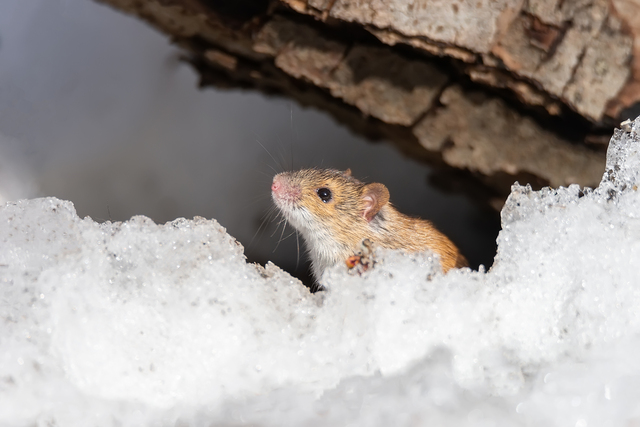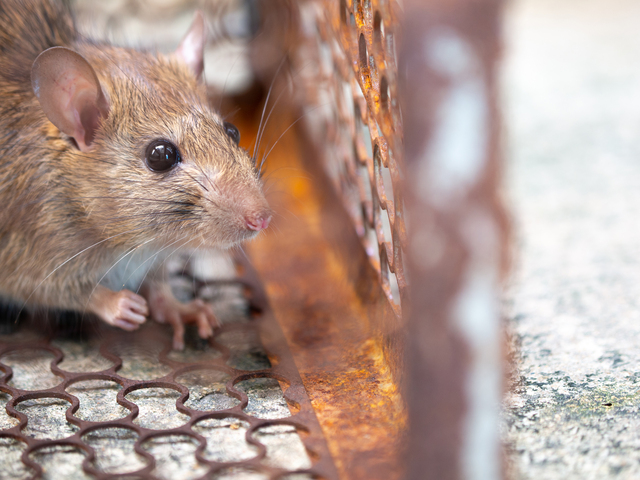From securing your pet food, which can be an irresistible feast for these critters, to rodent-proofing your New Jersey home, winter pest control preventive measures can significantly reduce the risk of an infestation.
Professional pest control services is the best option for your New Jersey home or business, especially when you may be dealing with a severe or persistent rodent problem.

Identifying Common Winter Rodents And Pest Control Options
During the cold months of a New Jersey winter is when many creatures, including rodents, seek warmth and shelter. This often leads them straight into our homes, causing damage and potential health risks. Understanding these common winter rodents is the first step in effectively keeping them at bay.
Understanding how to identify potential entry points in your home that rodents might exploit during the cold weather is important. By sealing these off, you can reinforce your home’s defenses against these unwanted intruders. Remember, preventing rodents from entering your home is far easier than battling a full-blown rodent infestation.
House Mice: The Small but Destructive Intruders
House mice are one of the most common types of rodents that invade homes during winter. These small creatures can squeeze through tiny gaps and openings, including spaces around exterior doors, to gain entry into your home.
Once inside, house mice can cause considerable damage. They have a tendency to chew on various materials to keep their teeth sharp, and this includes electrical wires. By gnawing on these wires, they can create dangerous fire hazards and expensive repair bills.
Norway Rats: The Robust Burrowers
Norway rats are larger rodents that also seek refuge from the harsh winter weather throughout New Jersey. Unlike house mice, Norway rats prefer to burrow under buildings or in piles of rubbish, including trash bags left outside homes.
These rats are also known for their gnawing habits, causing significant damage to property. Furthermore, they contaminate food and surfaces with their droppings, posing serious health risks.
Rodent-Proofing: A Key Pest Control Strategy
Understanding the behavior of these common winter rodents allows you to take preventative measures to rodent-proof your home. Here are a few effective ways to do so:
- Seal off Entry Points: Check for any openings around exterior doors, windows, and your home’s foundation. Seal these off to prevent rodents from gaining entry.
- Secure Food: Store food, including pet food, in sealed containers. This reduces the availability of food sources for rodents.
- Proper Waste Management: Regularly dispose of garbage in sealed trash bags and ensure your trash cans are securely closed.
- Professional Rodent Proofing: Consider hiring a professional rodent proofing service for a thorough inspection and treatment.

When to Call the Pros For Pest Control
As winter sets in, rodents begin their quest for warmth and shelter, often finding their way into our homes.
While homeowners can take several steps towards preventing rodents from invading, there are times when the situation escalates and calls for professional intervention.
Signs of a Serious Rodent Problem
Several telltale signs indicate that your rodent problem might need a more robust solution than a DIY approach. These include:
- Rodent Droppings: Discovering droppings around your home, especially in the kitchen or pantry, is a clear sign of a substantial infestation.
- Gnaw Marks: Noticing gnaw marks on furniture, electrical wires, or food containers suggests high-level rodent activity.
- Nesting Materials: Rodents use materials like shredded paper or fabric for building nests. If you find these in hidden corners of your house, it indicates a well-established infestation.
- Noises at Night: Rodents are predominantly nocturnal creatures. If you hear scratching or scampering sounds within your walls or attic during nighttime, it generally signifies a significant rodent problem.
The Role of Professionals in Preventing Rodents
When you’ve done your best—sealing exterior doors, checking window screens, storing food in sealed containers, and disposing of trash promptly—but still find signs of a serious infestation, it’s time to call in the professionals.
Pest control experts such as Callahan’s Termite & Pest Control provide comprehensive solutions to your rodent problem. Led by Mike and Sue Callahan, this family-owned and operated company offers prompt, quality exterminator services throughout New Jersey.
Our skilled and experienced inspectors and technicians, who are New Jersey State certified and licensed, can assess the extent of the infestation, identify the species of rodent, and determine the most effective treatment plan.
Professionals can offer advice and services to prevent rodents from returning. This might involve identifying and sealing potential entry points, recommending changes to landscaping to make your property less attractive to rodents, and setting up ongoing monitoring to catch any future infestations early.
Preventing Rodent Infestation In Wintertime
Winter brings with it the increased risk of rodent infestation in our homes. These unwelcome guests, such as house mice and Norway rats, not only cause significant damage to property but also pose serious health risks.
While certain preventative measures like sealing entry points, securing food, and managing waste can reduce the chances of an infestation, at times, the problem may escalate beyond a homeowner’s ability to manage.
In such cases, professional pest control services, like Callahan’s Termite & Pest Control, provide comprehensive, effective solutions. We help eliminate the existing problem and offer invaluable advice and services to prevent future infestations. So, as winter draws near, be proactive, stay vigilant, and reach out to professionals if needed, to ensure a rodent-free home.
